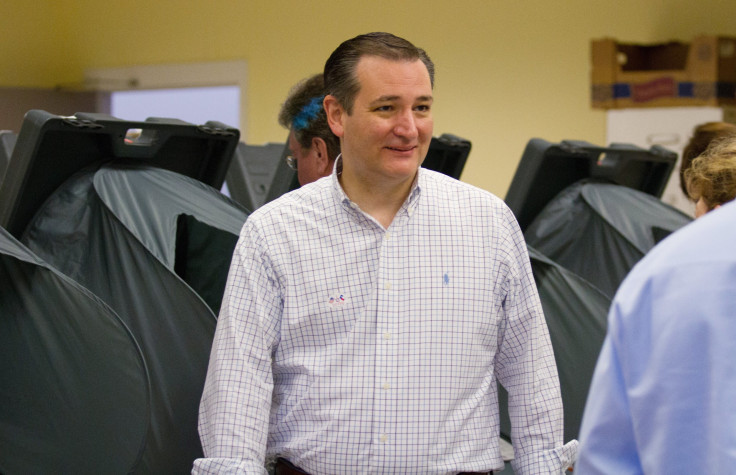Texas Super Tuesday Results 2016: Ted Cruz, Hillary Clinton Win Biggest State

The Texas primary, one of a dozen among the Super Tuesday contests across the country, represented one of the few weak spots for businessman Donald Trump and a must-win for Sen. Ted Cruz, the home state lawmaker who won the contest and extended the viability of his candidacy. In the end, it was a solid win for Cruz Tuesday over Florida Sen. Marco Rubio and Trump, who won most other states and appeared ready to dominate the night.
On the Democratic side, the Lone Star state added to former Secretary of State Hillary Clinton delegate padding as she pulled further ahead of her challenger, Vermont Sen. Bernie Sanders. Voting started there Tuesday morning and election officials in the state quickly began predicting record voter turnout with early numbers from Dallas indicated people were lined up at polling locations in the city.
.@tedcruz casting vote in Texas Primary #SuperTuesday #secprimary pic.twitter.com/gtsp6RICou
— Jessica Hopper (@jesshop23) March 1, 2016
It's #SuperTuesday in #Texas! Big voter turnout so far, for this massively important primary. pic.twitter.com/CYkFNXan3p
— Manuel Rapalo (@Manuel_Rapalo) March 1, 2016
With 155 delegates up for grabs in the GOP race, Cruz’s 9 percent lead over Trump in polls before first votes were cast and nearly 20 percent lead over third-place Rubio made it seem that Texas would be the boost he needed to keep the argument that he has a possible path to the nomination alive. Clinton led Sanders 62.3 percent to 32 percent in polls in the state, a 30.3 percent margin that had increased slightly in recent weeks.
Texas, like other Super Tuesday contests, awards delegates proportionally, so the exact margin by which Cruz and Clinton won could be important. The official delegate count was not immediately available.
Clinton was boosted in the state at least in part by a huge lead over her opponent among black and Hispanic voters, leading 76 to 22 percent and 68 to 31 percent respectively, according to a recent CBS News/Yougov poll. The two were virtually tied with white voters.
Cruz led the field with support of Latino voters, but was followed closely by Trump. White voters proved much more interested in voting for Cruz in the Lone Star state, preferring him 42 percent to Trump’s 31 percent.
© Copyright IBTimes 2025. All rights reserved.






















